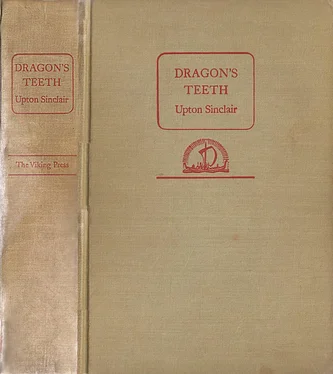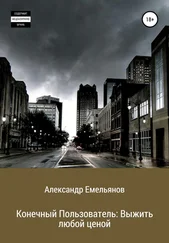Пользователь - o 3b3e7475144cf77c
Здесь есть возможность читать онлайн «Пользователь - o 3b3e7475144cf77c» весь текст электронной книги совершенно бесплатно (целиком полную версию без сокращений). В некоторых случаях можно слушать аудио, скачать через торрент в формате fb2 и присутствует краткое содержание. Жанр: Старинная литература, на русском языке. Описание произведения, (предисловие) а так же отзывы посетителей доступны на портале библиотеки ЛибКат.
- Название:o 3b3e7475144cf77c
- Автор:
- Жанр:
- Год:неизвестен
- ISBN:нет данных
- Рейтинг книги:4 / 5. Голосов: 1
-
Избранное:Добавить в избранное
- Отзывы:
-
Ваша оценка:
- 80
- 1
- 2
- 3
- 4
- 5
o 3b3e7475144cf77c: краткое содержание, описание и аннотация
Предлагаем к чтению аннотацию, описание, краткое содержание или предисловие (зависит от того, что написал сам автор книги «o 3b3e7475144cf77c»). Если вы не нашли необходимую информацию о книге — напишите в комментариях, мы постараемся отыскать её.
o 3b3e7475144cf77c — читать онлайн бесплатно полную книгу (весь текст) целиком
Ниже представлен текст книги, разбитый по страницам. Система сохранения места последней прочитанной страницы, позволяет с удобством читать онлайн бесплатно книгу «o 3b3e7475144cf77c», без необходимости каждый раз заново искать на чём Вы остановились. Поставьте закладку, и сможете в любой момент перейти на страницу, на которой закончили чтение.
Интервал:
Закладка:
expressing a doubt, which no heaven-sent evangelist ever admits. He said: "Now, Herr Budd,
go and do your duty. Make one simple rule that I have maintained ever since I founded this
movement—never to speak to a Jew, even over the telephone." Then, abruptly: "I have other
engagements and have to be excused."
The three quickly said their adieus; and when they were outside, Lanny, in his role of secret
agent, remarked: "No one can wonder that he stirs his audiences."
When he was back in the hotel with his wife and mother, he exclaimed: "Well, I know now
why Göring is keeping Freddi."
"Why?" they asked, with much excitement.
Lanny answered, in a cold fury: "He is going to breed him with a female ape!"
IX
Lanny had to play out the game according to the rules. He must not let either of these friends
discover that he had brought them here solely in the hope of persuading Hitler to release a
Jewish prisoner. It was for friendship, for sociability, for music and art. Lanny and Kurt must
play piano duets as in the old days. Zoltan must take them through the two Pinakotheks and
give them the benefit of his art knowledge. Beauty and Irma must put on their best togs and
accompany them to the Hof-und-National Theater for Die Meistersinger, and to the Prinz-
Regenten Theater for Goethe's Egmont. There must be a dinner at which distinguished
personalities in the musical world were invited to meet a leading Komponist. After a symphony
concert in the Tonhalle, Lanny listened to Kurt's highly technical comments on the
conductor and the sounds produced. The tone was hard, cold, and brilliant; it lacked "body,"
by which Kurt explained that he meant a just proportion of low and middle to high registers.
He accused the too-ardent Kapellmeister of exaggerating his nuances, of expanding and
contracting his volume unduly, fussing over his orchestra like an old hen with a too-large
brood of chicks—certainly an undignified procedure, and by no means suitable to the rendition
of Beethoven's Eroica.
But to Lanny it seemed more important to try to understand what the composer of that noble
symphony was trying to tell him than to worry about details of somebody's rendition. The last
time Lanny had heard this work had been with the Robin family in Berlin, and he recalled
Freddi's gentle raptures. Freddi wasn't one of those musicians who have heard so much music
that they have got tired of it, and can think about nothing but technicalities and personalities and
other extraneous matters. Freddi loved Beethoven as if he had been the composer's son; but
now father and son had been torn apart. Freddi wasn't fit to play Beethoven, by Heinrich's
decree, because he was a Jew; and certainly he wasn't having any chance to hear Beethoven in
Dachau. Lanny could think of little else, and the symphony became an appeal to the great
master for a verdict against those who were usurping his influence and his name.
In Beethoven's works there is generally a forceful theme that tramples and thunders, and a
gentle theme that lilts and pleads. You may take it as pleading for mercy and love against the
cruelties and oppressions of the world. You may take it that the grim, dominating theme
represents these cruelties, or perhaps it represents that which rises in your own soul to oppose
them. Anyhow, to Lanny the opening melody of the Eroica became the "Freddi theme," and
Beethoven was defending it against the hateful Nazis. The great democrat of old Vienna came
into the Tonhalle of Munich and laid his hand on Lanny's burning forehead, and told him
that he was right, and that he and his Jewish friend were free to march with Beethoven on
the battlefields of the soul and to dance with him on the happy meadows.
Was it conceivable that Beethoven would have failed to despise the Nazis, and to defy them?
He had dedicated his symphony to Napoleon because he believed that Napoleon represented the
liberating forces of the French revolution, and he had torn up the title page of his score when
he learned that Napoleon had got himself crowned Emperor of France. He had adopted
Schiller's Hymn to Joy, sending a kiss to the whole world and proclaiming that all men
became brothers where the gentle wing of joy came to rest. Very certainly he had not meant
to exclude the Jews from the human race, and would have spurned those who built their
movement out of hate.
That was what this urgent music was about; that was what gave it drive and intensity. The
soul of Beethoven was defending itself, it was defending all things German from those who
would defile them. The "Freddi theme" pleaded, it stormed and raged, heaving itself in mighty
efforts as the kettledrums thundered. The young idealist had told his friends that he wasn't
sure if he had within him the moral strength to withstand his foes; but here in this symphony
he was finding it; here he would prevail, and rejoice-but then would come the rushing hordes
and bowl him over and trample him. When the first movement came to its tremendous climax
Lanny's hands were tightly clenched and perspiration stood on his forehead.
The poignant, majestic march was Beethoven walking through the Nazi concentration camps
—as Lanny had walked so many times in imagination. It was the grief and suffering of fifty or a
hundred thousand of the finest and best-trained minds of Germany. It was Beethoven mourning
with them, telling them that the blackest tragedy can be turned to beauty by the infinite powers
of the soul. The finale of the symphony was a victory—but that was a long way off, and Lanny
couldn't imagine how it would come; he could only cling to the hand of the great master like a
little child to its father. After hearing this concert Lanny had to face the fact that his love for
Kurt and Heinrich had come to an end. He found it hard to be polite to his old friends; and he
decided that being a spy, or secret agent, or whatever you chose to call it, was first and foremost
a damnable bore. The greatest of all privileges in this life is saying what you think; and your
friends have to be people who can at least give decent consideration to your ideas. Lanny was
glad when he got Kurt and Heinrich on their separate trains for home. He thanked them for
what they had done, assured them that it had been worth while, and thought: "I am going to
get Freddi out of this hell, andthen get myself out andstay out."
X
For a week Lanny had been living in close proximity to that mass of human misery known as
Dachau; he had pretended to be indifferent to it, and had spoken of it only when he and Irma
were alone in their car. Dachau is a small market-town nine miles northwest of the city, and a
well-paved highway leads to it. Inevitably their thoughts had turned there, and the car had
taken them at the first opportunity. They didn't, like most tourists, inspect the castle on the
height; they looked for the concentration camp, which wasn't hard to find, as it occupied a
square mile of ground. It had been a World War barracks and training camp, disused since the
peace. A concrete wall seven feet high ran around it, having on top a tangle of barbed wire, no
doubt electrically charged. Lanny thought about somebody trying to climb that wall; it seemed
less possible when he came at night, and saw a blaze of white searchlights mounted in towers,
moving continually along the walls.
The report, published in the newspapers, that the Führer had seen the Sister of Mercy,
Читать дальшеИнтервал:
Закладка:
Похожие книги на «o 3b3e7475144cf77c»
Представляем Вашему вниманию похожие книги на «o 3b3e7475144cf77c» списком для выбора. Мы отобрали схожую по названию и смыслу литературу в надежде предоставить читателям больше вариантов отыскать новые, интересные, ещё непрочитанные произведения.
Обсуждение, отзывы о книге «o 3b3e7475144cf77c» и просто собственные мнения читателей. Оставьте ваши комментарии, напишите, что Вы думаете о произведении, его смысле или главных героях. Укажите что конкретно понравилось, а что нет, и почему Вы так считаете.




